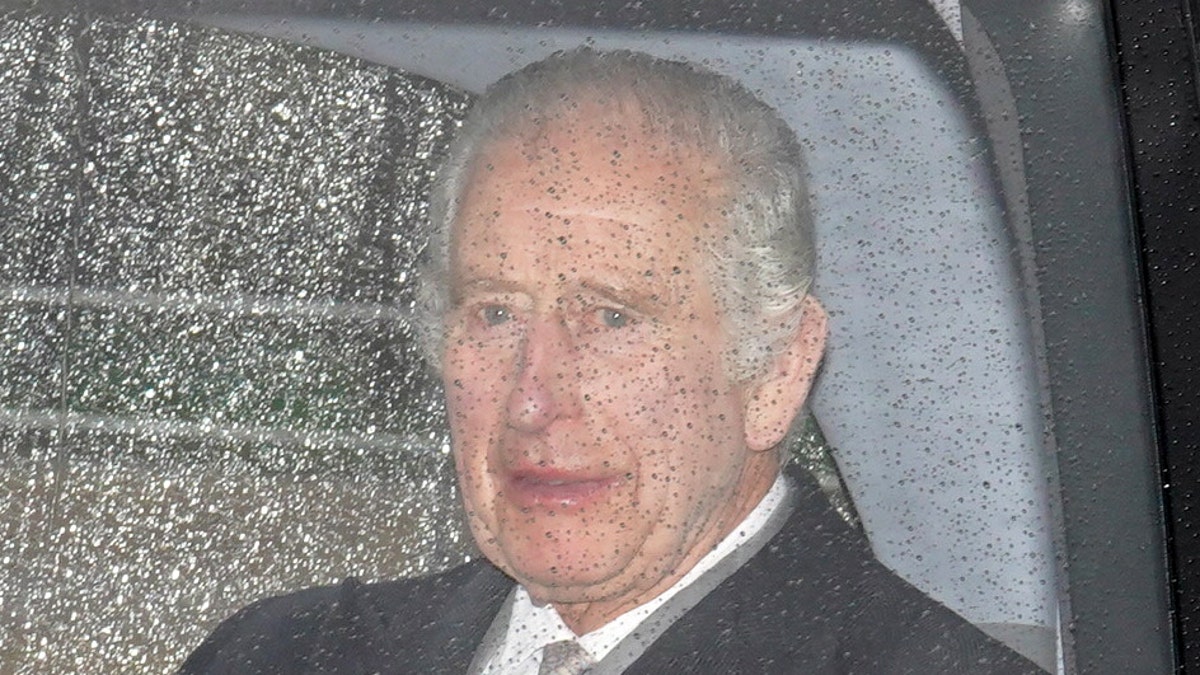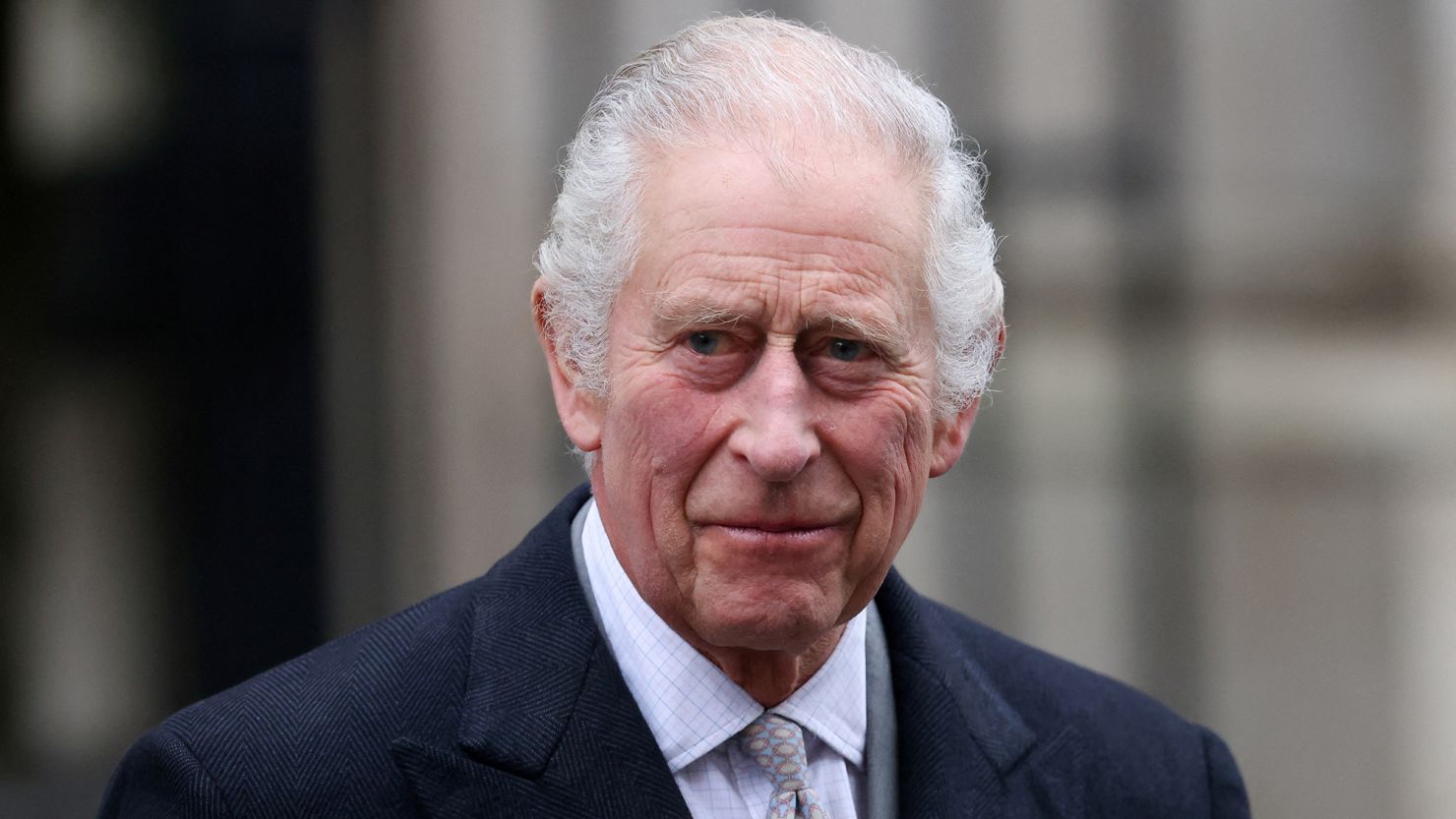When it comes to royal health, the world’s eyes are always glued to the tiniest details. Lately, whispers have been swirling around Buckingham Palace about King Charles's health, specifically whether he has pancreatic cancer. It’s a topic that’s grabbed everyone’s attention, and rightly so. As one of the most prominent figures in the world, King Charles’s well-being is not just personal—it’s public. So, let’s dive into the facts, separate the truth from the rumors, and explore what’s really going on.
Health speculation about public figures is nothing new, but when it involves a monarch, the stakes are higher. The question "does King Charles have pancreatic cancer?" has been floating around for weeks now, sparking debates and raising concerns among fans and critics alike. Let’s face it—pancreatic cancer is serious business, and it’s not something to take lightly. But before we jump to conclusions, it’s essential to unpack the details.
In this article, we’ll break down the facts, examine the rumors, and provide you with a clearer understanding of the situation. Whether you’re a royal enthusiast or just curious about the latest buzz, stick around because we’re about to drop some major knowledge on this topic.
Read also:Cincinnati Museum Center Your Ultimate Guide To Discovery And Adventure
Table of Contents:
- King Charles III: A Quick Biography
- Health Rumors Surrounding King Charles
- What Is Pancreatic Cancer?
- Symptoms of Pancreatic Cancer
- Diagnosis of Pancreatic Cancer
- Treatment Options for Pancreatic Cancer
- The Royal Family’s Approach to Health
- Reliable Sources on King Charles’s Health
- The Impact of Health Rumors on the Monarchy
- Final Thoughts: What Does the Future Hold?
King Charles III: A Quick Biography
Before we dive into the health drama, let’s take a moment to understand who King Charles III really is. Born on November 14, 1948, Charles Philip Arthur George is the eldest son of Queen Elizabeth II and Prince Philip. He became king following his mother’s passing in September 2022, marking a new chapter in British history.
King Charles has always been known for his passion for environmental issues, charity work, and modernizing the monarchy. But beyond the crown and ceremonies, he’s also a father, grandfather, and a guy who loves gardening and painting. Below is a quick rundown of his personal details:
| Full Name | Charles Philip Arthur George |
|---|---|
| Birthdate | November 14, 1948 |
| Spouse | Camilla, Queen Consort |
| Children | Prince William and Prince Harry |
| Reign Started | September 8, 2022 |
Now that we’ve got the basics covered, let’s move on to the juicy part: the health rumors.
Health Rumors Surrounding King Charles
When it comes to royalty, privacy isn’t really a thing. Every cough, sneeze, or trip to the doctor is scrutinized under a microscope. Recently, whispers have been circulating that King Charles might be battling pancreatic cancer. But are these rumors based on facts or just wild speculation?
Here’s the thing: pancreatic cancer is often referred to as the "silent killer" because its symptoms can be hard to detect in the early stages. This makes it easy for people to jump to conclusions whenever a public figure seems unwell. Add to that the fact that King Charles is 74 years old, an age where health concerns naturally increase, and you’ve got the perfect storm for rumors to spread.
Read also:Cobra Kai Cast A Deep Dive Into The Martial Arts Phenomenon
Separating Rumor from Truth
While the internet is full of half-truths and misleading headlines, it’s crucial to rely on credible sources when discussing someone’s health. So far, there’s no official statement from Buckingham Palace confirming or denying these claims. That being said, here are a few things to consider:
- Official Statements: The royal family rarely discusses personal health matters unless absolutely necessary. This means we might not get a definitive answer anytime soon.
- Recent Appearances: King Charles has been seen in public multiple times over the past few months, looking healthy and active. Sure, he’s got his fair share of gray hair, but isn’t that normal for someone his age?
- Media Sensationalism: Let’s not forget that the media loves a good scandal. Sometimes, the hype is more about clicks than facts.
What Is Pancreatic Cancer?
To understand the seriousness of the rumors, it’s important to know what pancreatic cancer actually is. Pancreatic cancer occurs when abnormal cells in the pancreas grow uncontrollably, forming a tumor. The pancreas is a small organ located behind the stomach that plays a key role in digestion and blood sugar regulation.
What makes pancreatic cancer particularly scary is its tendency to spread quickly and its resistance to treatment. According to the American Cancer Society, pancreatic cancer accounts for about 3% of all cancers in the U.S., but it’s responsible for about 7% of cancer deaths. Yeah, it’s that serious.
Types of Pancreatic Cancer
There are two main types of pancreatic cancer:
- Adenocarcinoma: The most common type, which starts in the cells that line the ducts of the pancreas.
- Neuroendocrine Tumors: A rarer form that develops in the hormone-producing cells of the pancreas.
Symptoms of Pancreatic Cancer
One of the reasons pancreatic cancer is so deadly is that its symptoms often don’t appear until the disease has progressed. By the time people start noticing something’s wrong, it might already be too late. Common symptoms include:
- Jaundice (yellowing of the skin and eyes)
- Abdominal or back pain
- Unexplained weight loss
- Loss of appetite
- Nausea and vomiting
Now, here’s the kicker: a lot of these symptoms can also be caused by less serious conditions. That’s why it’s crucial to consult a doctor if you notice any of these signs.
Diagnosis of Pancreatic Cancer
Diagnosing pancreatic cancer isn’t as straightforward as you might think. Doctors usually start with a physical exam and a review of the patient’s medical history. From there, they might order imaging tests like CT scans, MRIs, or ultrasounds to get a better look at the pancreas.
If a tumor is found, a biopsy might be performed to confirm whether it’s cancerous. Blood tests can also help detect certain markers that indicate the presence of pancreatic cancer. It’s a complex process, but one that’s necessary for accurate diagnosis.
The Importance of Early Detection
Early detection is key when it comes to pancreatic cancer. The earlier it’s caught, the better the chances of successful treatment. Unfortunately, since symptoms often don’t show up until later stages, many cases are diagnosed too late. That’s why regular check-ups and screenings are so important, especially for people at higher risk.
Treatment Options for Pancreatic Cancer
If pancreatic cancer is diagnosed, there are several treatment options available, depending on the stage and location of the cancer. These include:
- Surgery: Removing the tumor and surrounding tissue is often the first step if the cancer hasn’t spread.
- Chemotherapy: Using drugs to kill cancer cells or stop them from growing.
- Radiation Therapy: Using high-energy rays to destroy cancer cells.
- Targeted Therapy: Using drugs that target specific molecules involved in cancer growth.
It’s worth noting that treatment plans are highly personalized and depend on a variety of factors, including the patient’s overall health and preferences.
The Royal Family’s Approach to Health
The royal family has always been tight-lipped about personal health matters, and King Charles is no exception. While they may not disclose every detail, they do take health seriously. The royals have access to some of the best medical care in the world, which means any potential issues are likely being monitored closely.
That being said, it’s important to remember that even kings are human. Aging comes with its own set of challenges, and it’s natural for people to worry about their health as they get older. Whether or not King Charles has pancreatic cancer, one thing’s for sure: his well-being is a priority for both the monarchy and the public.
Reliable Sources on King Charles’s Health
With so much misinformation floating around, it’s crucial to rely on credible sources when discussing someone’s health. Here are a few trustworthy places to get your facts:
- Buckingham Palace: Official statements from the palace are the most reliable source of information.
- Reputable News Outlets: Publications like BBC, CNN, and The Guardian often provide accurate and well-researched reports.
- Medical Experts: Consulting with doctors or cancer specialists can give you a better understanding of the disease and its implications.
The Impact of Health Rumors on the Monarchy
Health rumors can have a significant impact on the monarchy, both in terms of public perception and the functioning of the institution itself. Speculation about a monarch’s health can lead to increased scrutiny, media frenzy, and even conspiracy theories. It’s a delicate balance between transparency and privacy, and one that the royal family has to navigate carefully.
For King Charles, these rumors could affect how the public views his ability to lead. While he’s shown himself to be a capable and dedicated monarch, questions about his health might raise concerns about the future of the monarchy. It’s a tough situation, but one that the royal family has faced before and will likely face again.
Final Thoughts: What Does the Future Hold?
So, does King Charles have pancreatic cancer? At this point, there’s no definitive answer. While the rumors are certainly unsettling, it’s important to approach them with a healthy dose of skepticism. Until an official statement is made, all we can do is speculate—and that’s not always productive.
What we do know is that King Charles is a remarkable man who’s dedicated his life to serving others. Whether he’s dealing with health challenges or simply navigating the complexities of being a monarch, one thing’s for sure: he’s got the resilience and determination to face whatever comes his way.
So, here’s what we’re asking you to do: share this article with your friends, leave a comment if you’ve got thoughts, and keep an open mind about the whole situation. After all, staying informed is the best way to separate fact from fiction. Stay tuned for more updates, and remember—sometimes the truth is more powerful than any rumor.


